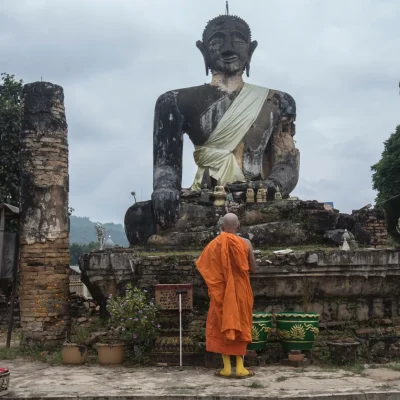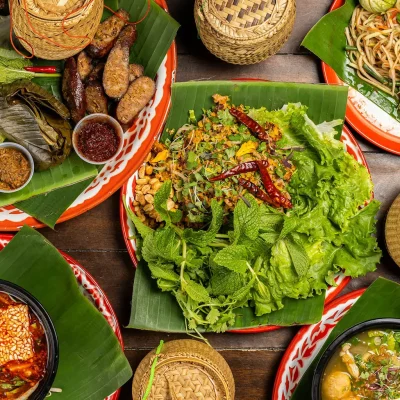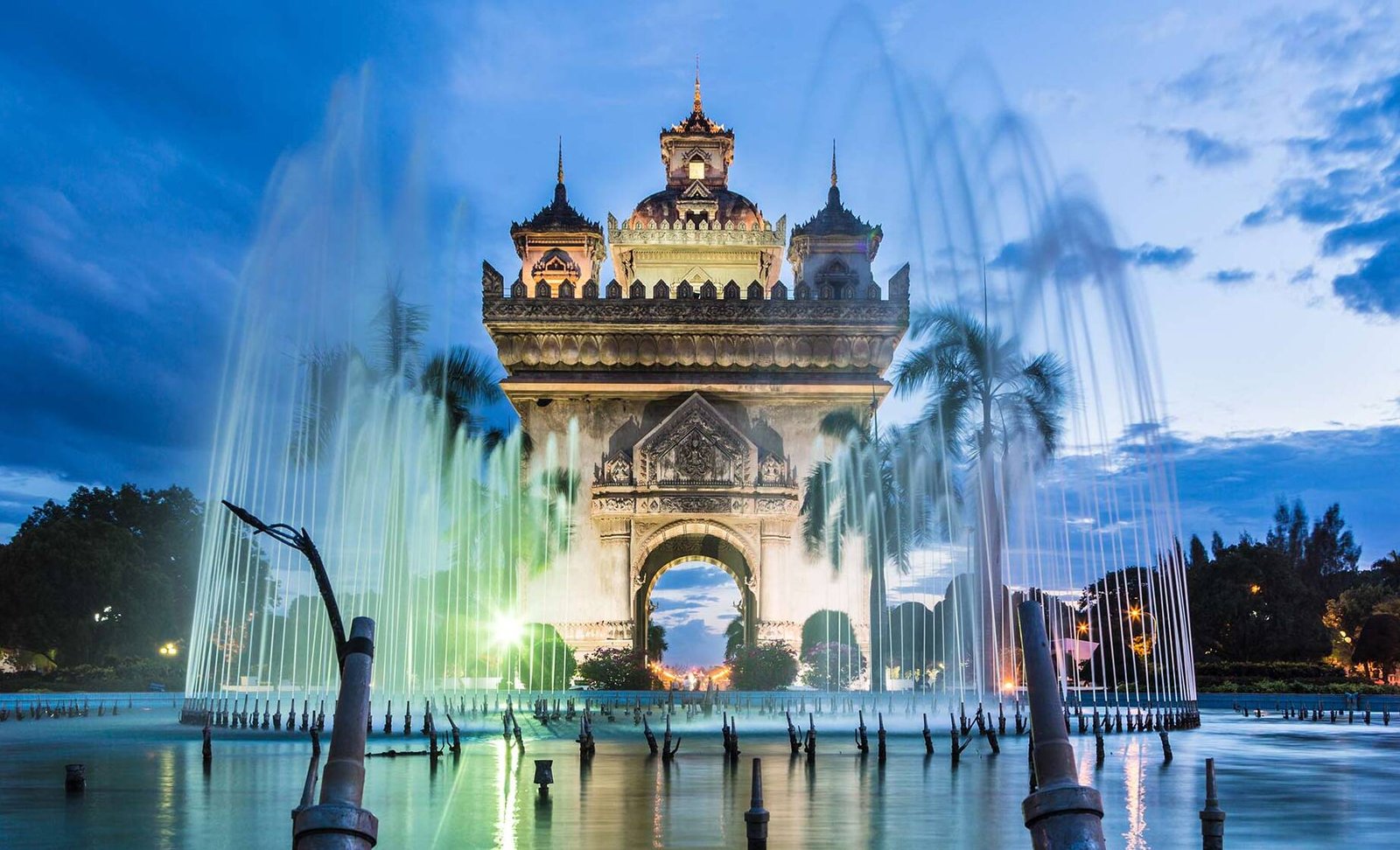





Vientiane, the capital city of Laos, is a fascinating blend of old-world charm and modern development. Nestled along the banks of the Mekong River, this vibrant city offers a unique mix of cultural attractions, historical sites, and a relaxed atmosphere. With its laid-back ambiance, friendly locals, and a wealth of experiences to offer, Vientiane is a destination that captivates visitors from all over the world.
One of the highlights of Vientiane is its rich cultural heritage. The city is dotted with magnificent Buddhist temples, each telling its own story and offering a glimpse into Laos’ spiritual traditions. The most famous temple in Vientiane is Pha That Luang, a golden stupa that symbolizes both Buddhism and the nation of Laos. This impressive structure is a must-visit for its grandeur and historical significance. Another notable temple is Wat Sisaket, known for its thousands of Buddha statues and beautiful architecture. Exploring these temples provides a serene and contemplative experience, allowing visitors to immerse themselves in the spiritual side of Laos.
Vientiane is also home to a range of museums and cultural centers that showcase the country’s history and art. The Lao National Museum, located in a French colonial building, offers a comprehensive overview of Laos’ past, from its prehistoric era to modern times. The museum houses a collection of artifacts, exhibits, and photographs that provide insights into the nation’s rich cultural heritage and struggles for independence. Another notable cultural venue is the Traditional Arts and Ethnology Center, which focuses on the ethnic diversity and traditional crafts of Laos. Visitors can learn about the different ethnic groups and their customs, and admire the intricate craftsmanship of textiles, jewelry, and other traditional artifacts.
For those seeking a taste of Vientiane’s modern side, the city offers a range of shopping opportunities, from bustling markets to modern shopping malls. The Morning Market, also known as Talat Sao, is a vibrant market where visitors can browse through a variety of goods, including clothing, handicrafts, electronics, and fresh produce. The market is a great place to witness local life, indulge in street food, or find unique souvenirs to take home. For a more upscale shopping experience, visitors can explore modern malls such as Vientiane Center or the ITECC Mall, where they can find international brands, restaurants, and entertainment options.
No visit to Vientiane would be complete without experiencing the city’s culinary delights. Laos cuisine is known for its fresh ingredients, aromatic herbs, and unique flavors. From street food stalls to upscale restaurants, Vientiane offers a range of dining options to suit all tastes and budgets. Don’t miss the opportunity to try traditional Lao dishes such as sticky rice, laap (a spicy minced meat salad), or tam mak hoong (a spicy papaya salad). For those seeking international flavors, Vientiane also offers a wide range of international cuisines, including French, Thai, Vietnamese, and more.
Vientiane’s riverside location along the Mekong River adds to its charm and provides a tranquil escape from the bustling city center. The riverfront promenade, known as the Chao Anouvong Park, offers a peaceful setting to enjoy a leisurely stroll, watch the sunset, or simply relax while enjoying views of the river and neighboring Thailand. The Mekong River is also a popular spot for boat cruises, allowing visitors to explore the river and its surrounding scenery.
In addition to its cultural and culinary offerings, Vientiane hosts various festivals and events throughout the year. The most significant festival is Boun That Luang, which takes place in November and celebrates the famous Pha That Luang stupa. During this time, the city comes alive with religious ceremonies, traditional performances, and vibrant processions. It is a fantastic opportunity to witness the spiritual devotion and cultural vibrancy of Laos.
Vientiane’s charm lies in its ability to offer a blend of cultural heritage, modern development, and a laid-back atmosphere. Whether you are exploring ancient temples, savoring local delicacies, or simply taking in the scenic beauty of the Mekong River, Vientiane promises to captivate you with its unique blend of old and new. So, come and discover the hidden treasures of this charming capital city and experience the warmth and hospitality of Lao
Subscribe to see secret deals prices drop the moment you sign up!
